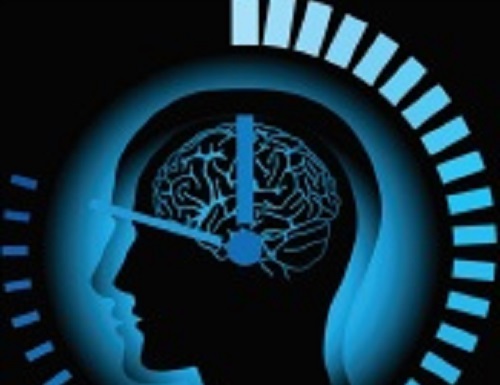
Know when it’s best to eat, work, exercise, sleep
Kampala, Uganda | THE INDEPENDENT | Timing is everything, and it also has a huge impact on your health. Now there’s a blood test to better understand your internal time clock and optimize it for better well-being.
The TimeSignature test was developed by researchers at Northwestern Medicine scientists. It requires two blood draws. It offers insights through gene expression markers into the time in your body compared to time in the external world.
For instance, it may be 8 a.m., but your body may be operating as if it’s 6 a.m. Previously, determining a person’s internal clock could only be done by drawing blood multiple times over a specific span.
The test, which measures 40 different gene expression markers in the blood, can be performed any time of day, regardless of the patient’s circadian pattern or level of restfulness. A report on it was published in PNAS earlier this month.
What’s the big deal?
Knowing more about your internal clock can help you optimize your time, take medication at the best time, and may even prevent disease, experts say.
“There is plenty of evidence indicating that the alignment between your internal clock and when you schedule your activities throughout the day can impact your overall health,” said Melissa A. St. Hilaire, PhD, an instructor in medicine at Harvard Medical School and a biostatistician in the division of sleep and circadian disorders at Brigham and Women’s Hospital in Boston.
She said that there seem to be optimal windows for when to sleep, eat, and complete other activities based on our internal time clocks, which vary among people.
In healthy people, the timing of the internal clock varies by up to five hours, which means one person’s optimal bedtime might be 9 p.m. and someone else’s might be 2 a.m. If you try to sleep at a time that’s not ideal for your internal clock, then you may have trouble sleeping, St. Hilaire said.
Similarly, eating a meal at the “wrong” internal time could cause changes in metabolism, including weight gain.
“If we know our personal internal time, then we may be able to schedule these activities around our optimal windows,” St. Hilaire said.
Testing your clock
“This is a much more precise and sophisticated measurement than identifying whether you’re a morning lark or a night owl,” Rosemary Braun, PhD, co-author of the report and assistant professor of preventive medicine at Northwestern University Feinberg School of Medicine in Chicago, said in a statement.
Our body’s biological clock directs our circadian rhythms, which include sleep and wake cycles. Previous research has linked circadian misalignments with everything from obesity and depression to heart disease and asthma.
“Before, we didn’t have a clinically feasible way of assessing the clock in healthy people and people with disease. Now we can see if a disrupted clock correlates with various diseases and, more importantly, if it can predict who is going to get sick,” said Dr. Ravi Allada, co-author of the PNAS study and a professor of neurobiology at Northwestern’s Weinberg College of Arts and Sciences.
Researchers say the information from the blood test will help people take medication at the most effective time for their bodies. It can also help scientists better understand how misaligned circadian clocks impact health conditions and diseases.
“This is really an integral part of personalized medicine,” said Dr. Phyllis Zee, a co-author and chief of sleep medicine in neurology at Feinberg School of Medicine in Chicago. “So many drugs have optimal times for dosing. Knowing what time it is in your body is critical to getting the most effective benefits. The best time for you to take a blood pressure drug or chemotherapy or radiation may be different from somebody else.”
Better clock, better health?
“We know if you have disruption of your internal clock, it can predispose you to a range of diseases. Virtually every tissue and organ system are governed by circadian rhythm,” said Allada.
St. Hilaire pointed out that disruptions to circadian rhythms have been associated with mood disorders such as depression, neurodegenerative disorders like Alzheimer’s disease, and metabolic disorders, including obesity and diabetes.
“Circadian rhythms play a complex role in just about every system in your body,” St. Hilaire said. “Maintaining good circadian health therefore seems to be a key factor in maintaining good overall health.”
Keep your internal clock running smoothly
Follow light and dark patterns to keep your internal clock running on a 24-hour cycle.
St. Hilaire advises people to have good sleep habits which means going to sleep at the same time every night, waking up at the same time every morning, and exposing yourself to outdoor light as early as possible after waking up. Additionally, she says people should avoid electronic devices before bed and eat and exercise at the same time of day.
“Occasional disruptions to your schedule aren’t expected to cause long-term harm,” St. Hilaire said. “If you’re consistently altering your bedtime or meal times from one day to the next, however, then your internal clock will not be stable, and that instability over months or years may contribute to some disease processes.”
The bottom line
A new test measures 40 different gene expression markers in the blood, and can tell offer insights into the time in your body compared to time in the external world.
It can be performed any time of day, regardless of the patient’s circadian pattern or level of restfulness. A report on it was published this month in PNAS.
If you optimize your internal clock, you may be able to improve your health by taking medication at the most optimal time, working out at the right time, or figuring out if you’re a morning person or a night owl.
****
Source: sciencedaily
 The Independent Uganda: You get the Truth we Pay the Price
The Independent Uganda: You get the Truth we Pay the Price



